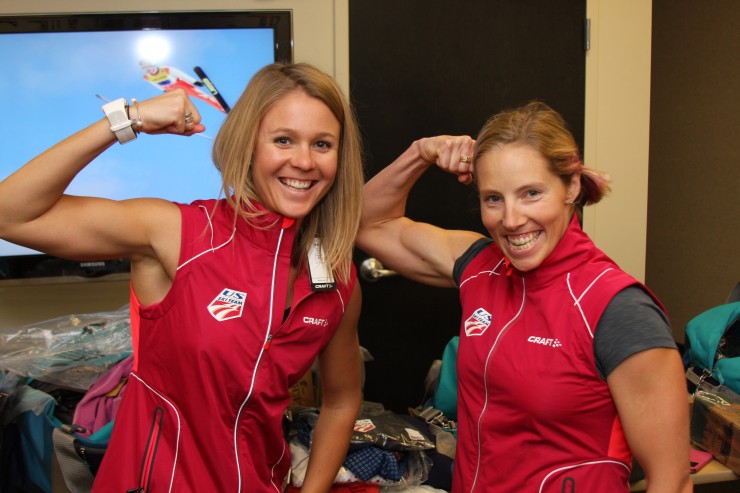
After an eventful and successful 2015/2016 campaign, the U.S. Ski Team (USST) has recently suffered a number of injury-related setbacks. Less than a week after finishing the season, Jessie Diggins suffered a severe posterior kneecap dislocation (PKD syndrome) while jumping in the air for a team photo.
“I have no idea what happened,” a confused Diggins tweeted from her bed in Afton, Minn. “I LOVE the jumping photo and usually they love me right back. … It’s hard to describe this feeling … It’s kinda yucky!!!”
Returning Diggins to form is a top priority for the USST, so the best medical minds in the country have been brought in to address her injuries. Leading the team of surgeons, physiologists and psychiatrists is Dr. Richard Fitzwell, a world-renowned orthopedic surgeon and sports medicine specialist, from the Mayo Clinic, Rochester, Minn.
“This is a very important and complicated case,” said Fitzwell. “The mechanism of injury here is difficult to determine. Unfortunately we do not have any video of her landing, only a useless still photo of Jessie jumping in the air. Our current best theory is that the longitudinal sheer forces between the tibia and femur created by impacting the ground produced microscopic tearing of the tendons and surrounding musculature of the kneecap.
“A limited number of these impacts would likely have been inconsequential, but the pointless repetition of this process had an additive effect,” he continued. “Even for an elite athlete, the repeated loading and unloading of these ligaments with similar, unpredictable force vectors can cause degeneration of the connective tissue and long-term functional instability. Jessie’s knee was basically a ticking bomb.”
Fitzwell added, “In my practice I regularly counsel and caution athletes of all level to be careful while taking these ‘jump photos.’ People think that they are funny, harmless activities, but in addition to being very played out, they are actually quite dangerous. No serious athlete with any dignity should ever do them at any time. I understand that in this day and age there are lots of media pressures, but it is in your best interest as an athlete to simply instruct the paparazzi to take a photograph of you standing still on the podium holding your skis like a normal person. It’s a safety issue.”
Sadly, the timing of this injury couldn’t be worse as Diggins is still feeling the effects of her high ankle sprain suffered while attempting to learn the dance moves to a local junior-high production of “The Music Man.” Further compounding the problem is the fact that her recovery was also still not complete from a very bizarre incident in which her pony tail became ensnared in a bird cage at a family cabin in Eli, Minn., requiring a series of skin grafts, weaves and extensions. This latest injury was thusly a most unwelcome setback for the normally upbeat Diggins.
Misfortune has also befell the men’s squad: Noah Hoffman developed a Staph infection immediately following this past weekend’s races in Craftsbury after suffering a severe paper cut playing a heated game of Settlers of Catan with his girlfriend at a Utah laundromat.
“It was a bit of a trade-off,” noted the ever-stoic Hoffman. “I finally have clean underwear, which I like, but it is a shame than my body is now covered with oozy, pus-filled sores. I knew I shouldn’t have used the laundromat restrooms.”

Erik Bjornsen also fell victim to this alarming trend when he damaged several ligaments in his wrist and elbow while attempting to arm wrestle Kikkan Randall, who is almost full-term in her pregnancy, at the Burlington airport Red Carpet Club.
“It’s been a tough few days,” explained an exasperated U.S. Ski Team Head Coach Chris Grover. “We’ve had a real run of bad luck and this feels like I’m seeing Déjà vu all over again for the second time.”
Luke Bodensteiner, USSA Executive Vice President for Athletics, was alpine skiing at a luxury resort in the Swiss Alps and unavailable for comment.



